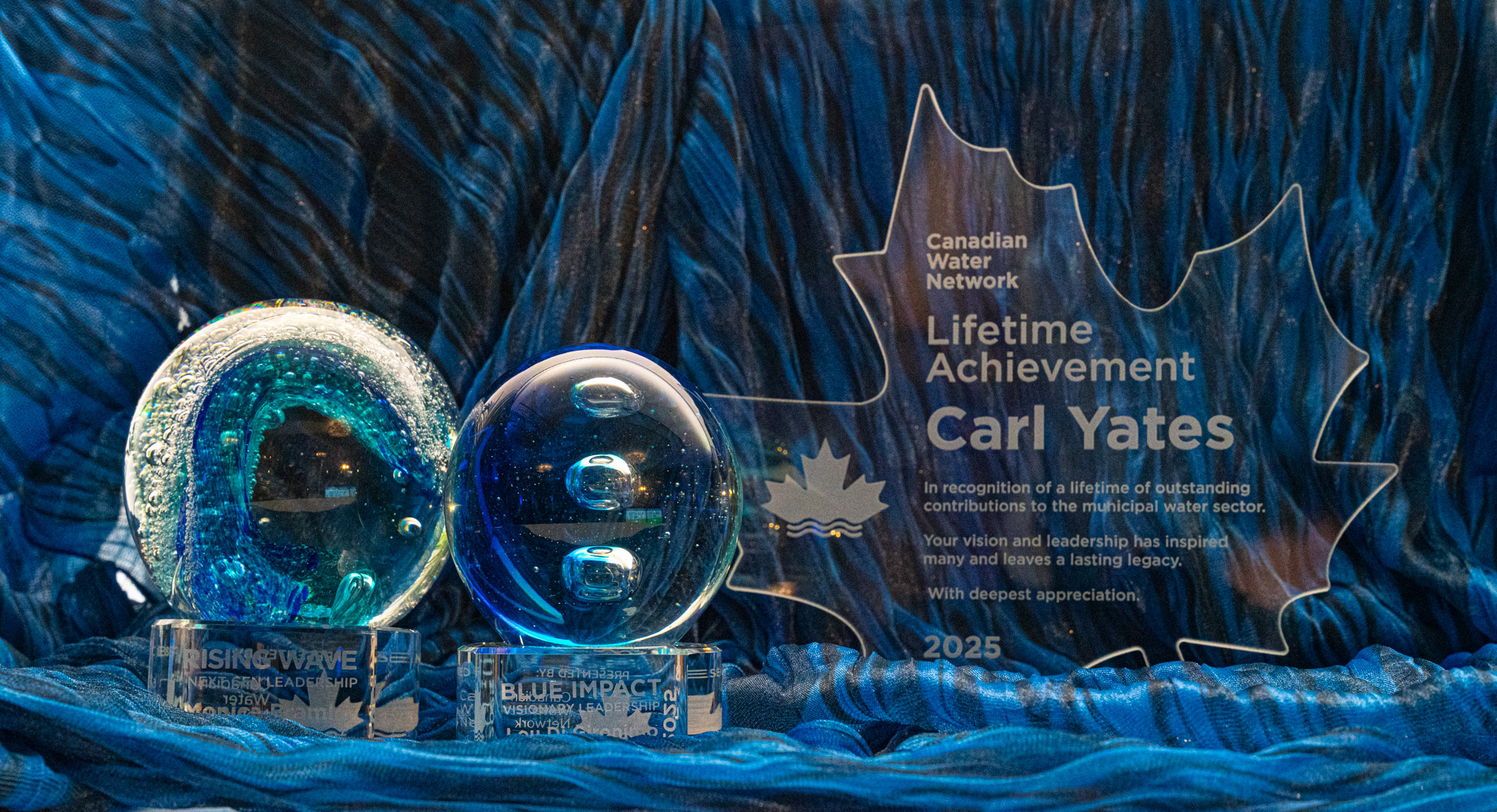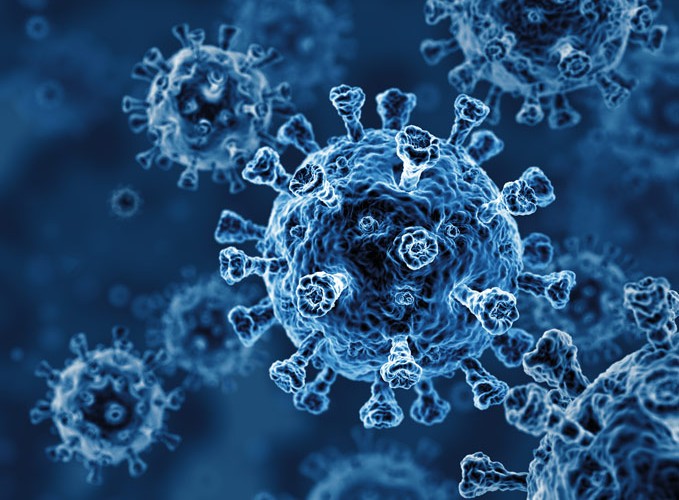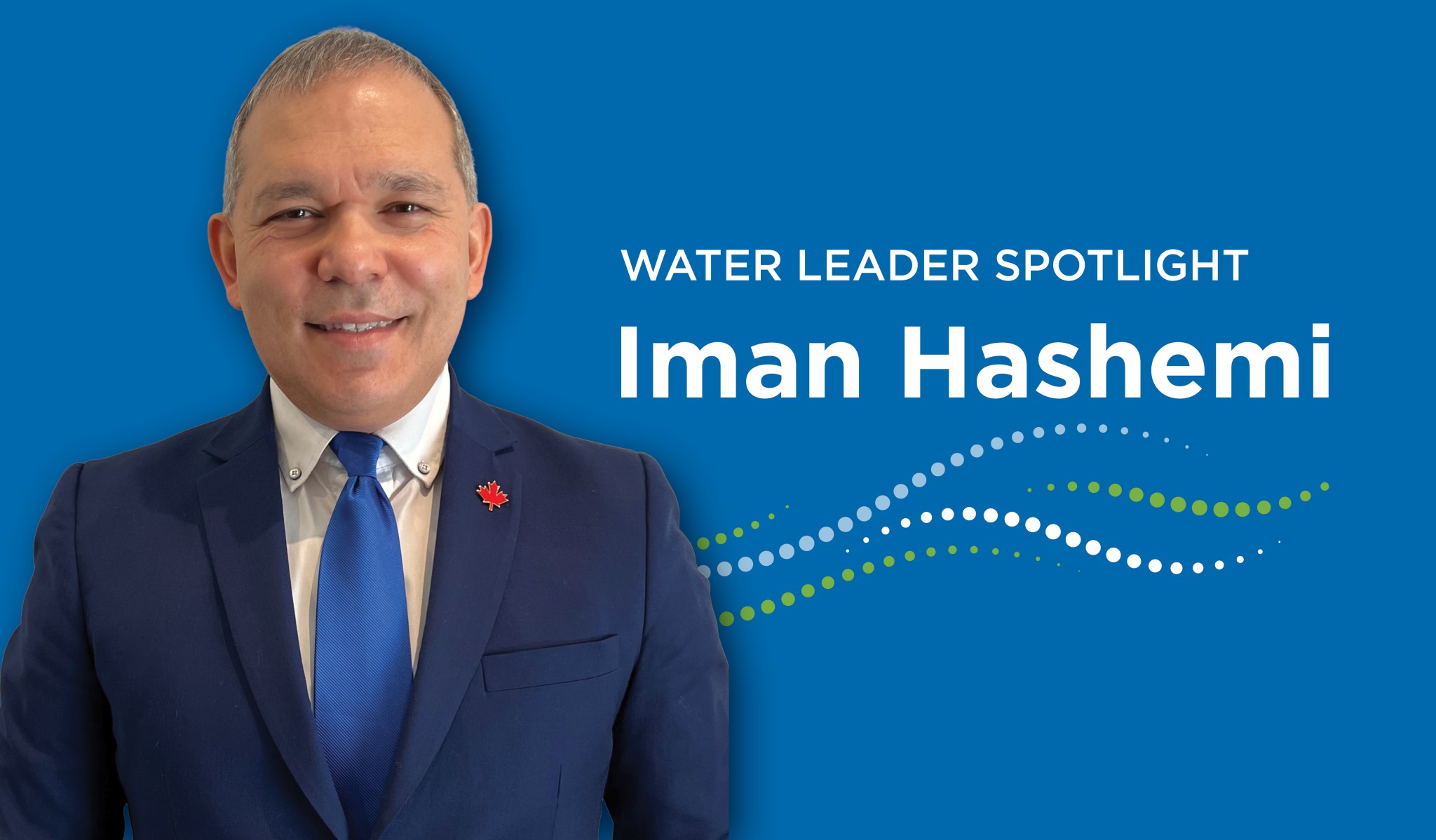Mobilizing knowledge for public health practitioners
September 11, 2024
CWN’s quarterly newsletter with the latest news, insights, and thought leadership.

The second year of the Canadian Water Network’s (CWN) and National Collaborating Centre for Infectious Diseases (NCCID) Wastewater-Based Surveillance (WBS) peer learning program has continued with renewed vigour.
Water Canada Award
We’re excited to share that our WBS program received an award from Water Canada. Water Canada’s Awards recognize people, projects and technologies that demonstrate a strong commitment to improving the Canadian water sector. Our WBS program received an award in the education category, which acknowledges an initiative that serves as a beacon of knowledge dissemination and community empowerment. Nicola Crawhall, CEO of CWN, accepted the award on behalf of CWN and NCCID.
Kicking off our first Provincial/Territorial Forum
This quarter, we convened our first-ever Provincial/Territorial Forum on WBS, with participation from all 10 provinces and one territory. Provincial and territorial public health officials came together for an open conversation on the future of wastewater surveillance in Canada, the ongoing value of WBS, and how to develop a business case for wastewater surveillance across the country. Participants also voiced questions about the sustainability of WBS programs. Insights from this meeting will guide discussions at our upcoming provincial/territorial forum, which will be held at our in-person summit.
A national summit on the future of wastewater surveillance
CWN and NCCID are hosting a national summit on the future of wastewater surveillance from September 10-12. We are bringing together multiple stakeholders involved in wastewater monitoring, including all levels of government, Indigenous organizations, researchers, laboratory and epidemiology experts. Together, they will explore several themes, including:
- Maintaining and strengthening partnerships amongst labs, public health, wastewater operations and research communities that sustain wastewater surveillance in Canadian communities.
- The value of WBS and components needed to build a compelling business case, including the economic benefit of wastewater monitoring.
- Challenges with greater harmonization amongst partners performing wastewater surveillance and considerations for standardizing methodologies
- The appropriate scope (which pathogens and agents to monitor) and scale (number of sites, where, and frequency) of WBS programs in different contexts.
- Lab infrastructure needed to support WBS in communities across Canada.
- Containing costs through new technologies and automation.
Next steps
Over the next quarter, CWN and NCCID will continue facilitating knowledge-sharing and peer learning amongst Strategic Sharing Group (SSG) participants. We will also begin a series of monthly, virtual sessions bringing together program participants and content experts together to discuss and tackle the questions generated at our in-person summit. More information about our WBS program is available here.












